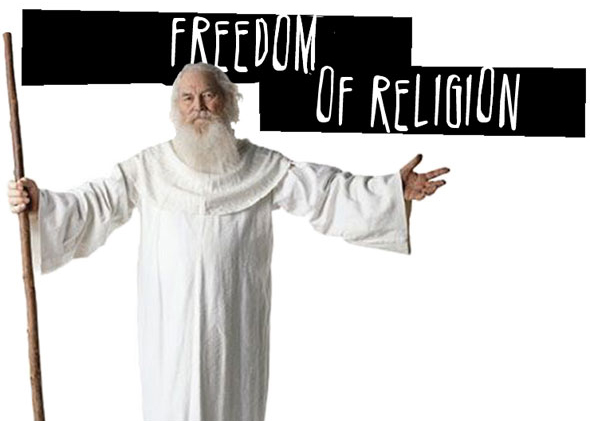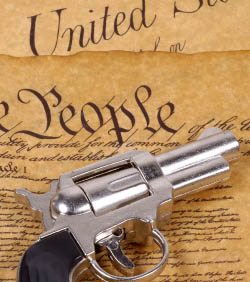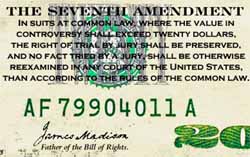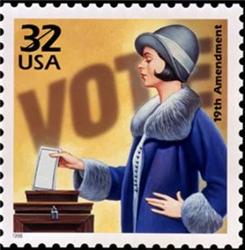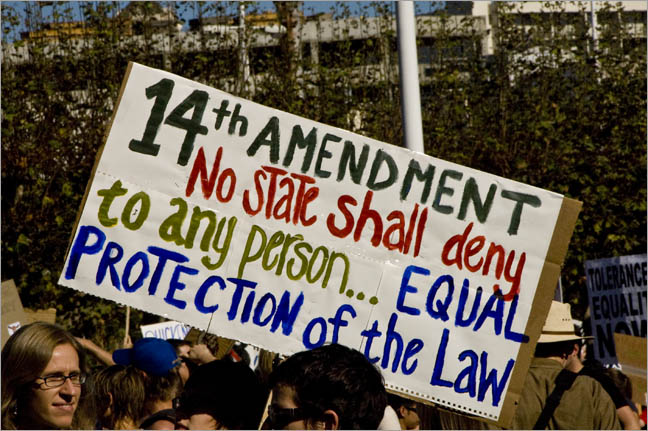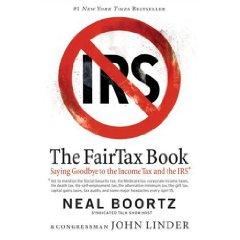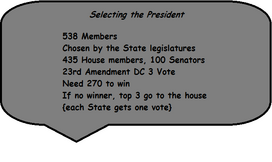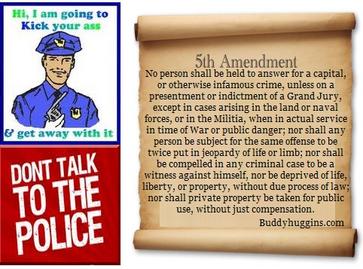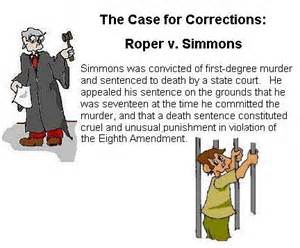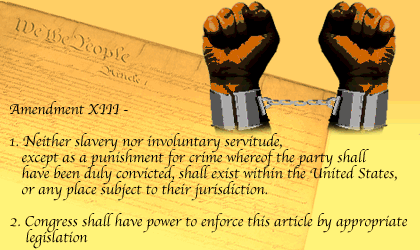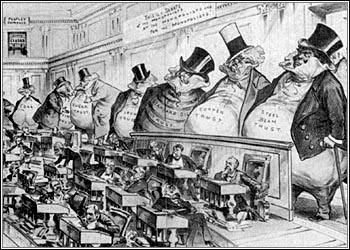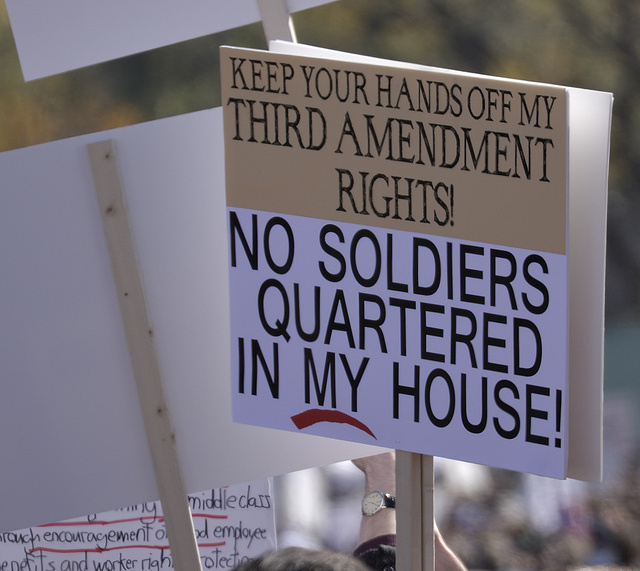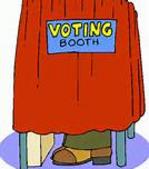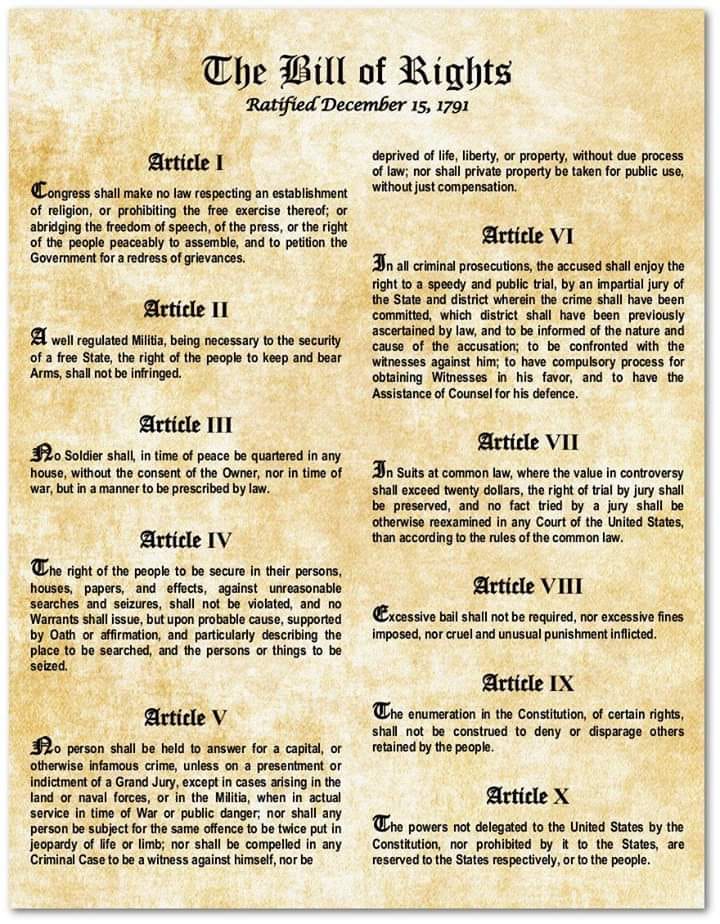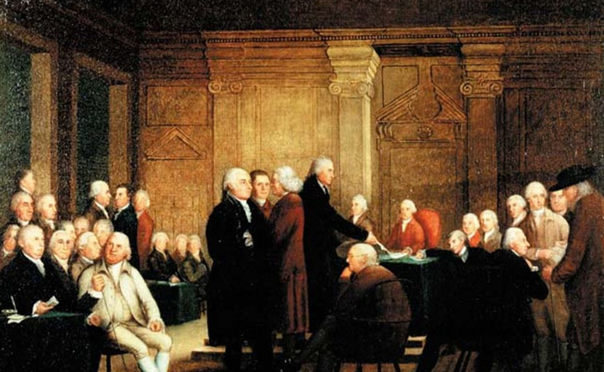TOP^
26 Amendment
THE EIGHTEEN–YEAR–OLD VOTE
In extending the Voting Rights Act of 1965 in 1970 1 Congress included a provision
lowering the age qualification to vote in all elections, federal, state, and local, to 18. 2
In
a divided decision, the Supreme Court held that Congress was empowered to lower
the age qualification in federal elections, but voided the application of the provision in
all other elections as beyond congressional power. 3 Confronted thus with the
possibility that they might have to maintain two sets of registration books and go to
the expense of running separate election systems for federal elections and for all
other
elections, the States were receptive to the proposing of an Amendment by Congress
to
establish a minimum age qualification at 18 for all elections, and ratified it promptly. 4
Footnotes
1 79 Stat. 437 , as extended and amended by 84 Stat. 314 , 42 U.S.C. Sec. 1971 et seq.
2 Title 3, 84 Stat. 318 , 42 U.S.C. Sec. 1973bb .
3 Oregon v. Mitchell, 400 U.S. 112 (1970) .
4 S. Rep. No. 26, 92d Cong., 1st Sess. (1971); H.R. Rep. No. 37, 92d Cong., 1st Sess.
(1971).
27 Amendment
REGULATING CONGRESSIONAL PAY
Referred to the state legislatures at the same time as those proposals that eventually
became the Bill of Rights, the congressional pay amendment had long been assumed
to be dead. 1 This provision had its genesis, as did several others of the first
amendments, in the petitions of the States ratifying the Constitution. 2 It, however, was
ratified by only six States (out of the eleven needed), and it was rejected by five
States.
Aside from the idiosyncratic action of the Ohio legislature in 1873, which ratified the
proposal in protest of a controversial pay increase adopted by Congress, the pay
limitation provision lay dormant until the 1980s. Then, an aide to a Texas legislator
discovered the proposal and began a crusade that culminated some ten years later in
its proclaimed ratification. 3
Now that the provision is apparently a part of the Constitution, 4 it will likely play a
minor role. What it commands was already statutorily prescribed, and, at most, it may
have implications for automatic cost–of–living increases in pay for Members of
Congress. 5
Footnotes
1 Indeed, in Dillon v. Gloss, 256 U.S. 368, 375 (1921) , the Court, albeit in dictum,
observed that, unless the inference was drawn that ratification must occur within some
reasonable time of proposal, “four amendments proposed long ago—two in 1789, one
in 1810 and one in 1861—are still pending and in a situation where their ratification in
some of the States many years since by representatives of generations now largely
forgotten may be effectively supplemented in enough more States to make three
–fourths by representatives of the present or some future generation. To that view few
would be able to subscribe, and in our opinion it is quite untenable.”
(Emphasis supplied).
2 A comprehensive, scholarly treatment of the background, development, failure, and
subsequent success of this amendment is Bernstein, The Sleeper Wakes: The History
and Legacy of the Twenty– Seventh Amendment, 61 L. Rev. 497 (1992). A briefer
account is The Congressional Pay Amendment, 16 Ops. of the Office of Legal Counsel,
U.S. Dept. of Justice 102, App. at 127–136 (1992) (prelim. pr.).
3 The ratification issues are considered supra in the discussion of Article V.
4 In the only case to date brought under the Amendment, the parties did not raise the
question of the validity of its ratification; the court refused to consider the issue raised
by an amicus. Boehner v. Anderson, 809 F.Supp. 138, 139 (D.D.C. 1992). It is not at all
clear the issue is justiciable.
5 See supra, p.126.
- 1st Articles and Amendments
ARTICLE IN ADDITION TO, AND AMENDMENT OF, THE CONSTITUTION OF THE UNITED STATES OF AMERICA, PROPOSED BY CONGRESS, AND RATIFIED BY THE LEGISLATURES OF THE SEVERAL STATES, PURSUANT TO THE FIFTH ARTICLE OF THE ORIGINAL CONSTITUTION
Amendments to the Constitution of the United States
(Amendments I to X inclusive, popularly known as the Bill of Rights, were proposed and sent to the states by the first session of the First Congress. They were ratified Dec. 15, 1791.)
Article I. {01} One *
[Freedom of religion, speech, of the press, and right of petition.]
Congress shall make no law respecting an establishment of religion, or prohibiting the free exercise thereof; or abridging the freedom of speech, or of the press; or the right of the people peaceably to assemble, and to petition the Government for a redress of grievances.
Article II. {02} Two * *
[Right of people to bear arms not to be infringed.]
A well regulated Militia, being necessary to the security of a free State, the right of the people to keep and bear Arms, shall not be infringed.
Article III. {03} Three * * *
[Quartering of troops.]
No soldier shall, in time of peace be quartered in any house, without the consent of the Owner, nor in time of war, but in a manner to be prescribed by law.
Article IV. {04} Four * * * *
[Persons and houses to be secure from unreasonable searches and seizures.]
The right of the people to be secure in their persons, houses, papers, and effects, against unreasonable searches and seizures, shall not be violated, and no Warrants shall issue, but upon probable cause, supported by Oath or affirmation, and particularly describing the place to be searched, and the persons or things to be seized.
Article V. {05} Five * * * * *
[Trials for crimes; just compensation for private property taken for public use.]
No person shall be held to answer for a capital, or otherwise infamous crime, unless on a presentment or indictment of a Grand Jury, except in cases arising in the land or naval forces, or in the militia, when in actual service in time of War or public danger; nor shall any person be subject for the same offence to be twice put in jeopardy of life or limb; nor shall be compelled in any criminal case to be a witness, against himself, nor be deprived of life, liberty, or property, without due process of law; nor shall private property be taken for public use, without just compensation.
Article VI. {06} Six * * * * * *
[Civil rights in trials for crimes enumerated.]
In all criminal prosecutions, the accused shall enjoy the right to a speedy and public trial, by an impartial jury of the State and district wherein the crime shall have been committed, which district shall have been previously ascertained by law, and to be informed of the nature and cause of the accusation; to be confronted with the witnesses against him; to have compulsory process for obtaining witnesses in his favor, and to have the assistance of counsel for his defense.
Article VII. {07} Seven * * * * * * *
[Civil rights in civil suits.]
In Suits at common law, where the value in controversy shall exceed twenty dollars, the right of trial by jury shall be preserved, and no fact tried by a jury, shall be otherwise re-examined in any Court of the United States, than according to the rules of the common law.
Article VIII. {08} Eight * * * * * * * *
[Excessive bail, fines, and punishments prohibited.]
Excessive bail shall not be required, nor excessive fines imposed, nor cruel and unusual punishments inflicted.
Article IX. {09} Nine * * * * * * * * *
[Reserved rights of people.]
The enumeration in the Constitution, of certain rights, shall not be construed to deny or disparage others retained by the people.
Article X. {10} Ten * * * * * * * * * *
[Powers not delegated, reserved to states and people respectively.]
The powers not delegated to the United States by the Constitution, nor prohibited by it to the States, are reserved to the States, respectively, or to the people.
Article XI. {11} Eleven * * * * * * * * * * *
(The proposed amendment was sent to the states Mar. 5, 1794, by the Third Congress. It was ratified Feb. 7, 1795.)
[Judicial power of United States not to extend to suits against a state.]
The Judicial power of the United States shall not be construed to extend to any suit in law or equity, commenced or prosecuted against one of the United States by Citizens of another State, or by Citizens or Subjects of any Foreign State.
Article XII. {12} Twelve * * * * * * * * * * * *
(The proposed amendment was sent to the states Dec. 12, 1803, by the Eighth Congress. It was ratified July 27, 1804.)
[Present mode of electing president and vice president by electors.1]
1. Amended by the 20th Amendment, Sections 3 and 4.
The Electors shall meet in their respective states, and vote by ballot for President and Vice President, one of whom, at least, shall not be an inhabitant of the same state with themselves; they shall name in their ballots the person voted for as President, and in distinct ballots the person voted for as Vice President, and they shall make distinct lists of all persons voted for as President, and of all persons voted for as Vice President, and of the number of votes for each, which lists they shall sign and certify, and transmit sealed to the seat of the government of the United States, directed to the President of the Senate; the President of the Senate shall, in the presence of the Senate and House of Representatives, open all the certificates and the votes shall then be counted; the person having the greatest number of votes for President, shall be the President, if such number be a majority of the whole number of electors appointed; and if no person have such majority, then from the persons having the highest numbers not exceeding three on the list of those voted for as President, the House of Representatives shall choose immediately, by ballot, the President. But in choosing the President, the votes shall be taken by states, the representation from each State having one vote; a quorum for this purpose shall consist of a member or members from two thirds of the states, and a majority of all the states shall be necessary to a choice. And if the House of Representatives shall not choose a President whenever the right of choice shall devolve upon them, before the fourth day of March next following, then the Vice President shall act as President, as in the case of the death or other constitutional disability of the President. The person having the greatest number of votes as Vice President, shall be the Vice President, if such number be a majority of the whole number of electors appointed, and if no person have a majority, then from the two highest numbers on the list, the Senate shall choose the Vice President; a quorum for the purpose shall consist of two thirds of the whole number of Senators, and a majority of the whole number shall be necessary to a choice. But no person constitutionally ineligible to the office of President shall be eligible to that of Vice President of the United States.
Article XIII. {13} Thirteen * * * * * * * * * * * * *
(The proposed amendment was sent to the states Feb. 1, 1865, by the Thirty-eighth Congress. It was ratified Dec. 6, 1865.)
Section 1
[Slavery prohibited.]
Neither slavery nor involuntary servitude, except as a punishment for crime whereof the party shall have been duly convicted, shall exist within the United States, or any place subject to their jurisdiction.
Section 2
[Congress given power to enforce this article.]
Congress shall have power to enforce this article by appropriate legislation.
Article XIV. {14} Fourteen * * * * * * * * * * * * * *
(The proposed amendment was sent to the states June 16, 1866, by the Thirty-ninth Congress. It was ratified July 9, 1868.)
Section 1
[Citizenship defined; privileges of citizens.]
All persons born or naturalized in the United States, and subject to the jurisdiction thereof, are citizens of the United States and of the State wherein they reside. No State shall make or enforce any law which shall abridge the privileges or immunities of citizens of the United States; nor shall any State deprive any person of life, liberty, or property, without due process of law; nor deny to any person within its jurisdiction the equal protection of the laws.
Section 2
[Apportionment of Representatives.]
Representatives shall be apportioned among the several States according to their respective numbers, counting the whole number of persons in each State, excluding Indians not taxed. But when the right to vote at any election for the choice of electors for President and Vice President of the United States, Representatives in Congress, the executive and judicial officers of a State, or the members of the Legislature thereof, is denied to any of the male inhabitants of such State, being twenty-one years of age, and citizens of the United States, or in any way abridged, except for participation in rebellion, or other crime, the basis of representation therein shall be reduced in the proportion which the number of such male citizens shall bear to the whole number of male citizens twenty-one years of age in such State.
Section 3
[Disqualification for office; removal of disability.]
No person shall be a Senator or Representative in Congress, or elector of President and Vice President, or hold any office, civil or military, under the United States, or under any State, who, having previously taken an oath, as a member of Congress, or as an officer of the United States, or as a member of any State Legislature, or as an executive or judicial officer of any State, to support the Constitution of the United States, shall have engaged in insurrection or rebellion against the same, or given aid or comfort to the enemies thereof. But Congress may, by a vote of two thirds of each House, remove such disability.
Section 4
[Public debt not to be questioned; payment of debts and claims incurred in aid of rebellion forbidden.]
The validity of the public debt of the United States, authorized by law, including debts incurred for payment of pensions and bounties for services in suppressing insurrection or rebellion, shall not be questioned. But neither the United States nor any State shall assume or pay any debt or obligation incurred in aid of insurrection or rebellion against the United States, or any claim for the loss or emancipation of any slave; but all such debts, obligations, and claims shall be held illegal and void.
Section 5
[Congress given power to enforce this article.]
The Congress shall have power to enforce, by appropriate legislation, the provisions of this article.
Article XV. {15} Fifteen * * * * * * * * * * * * * * *
(The proposed amendment was sent to the states Feb. 27, 1869, by the Fortieth Congress. It was ratified Feb. 3, 1870.)
Section 1
[Right of certain citizens to vote established.]
The right of citizens of the United States to vote shall not be denied or abridged by the United States or by any State on account of race, color, or previous condition of servitude.
Section 2
[Congress given power to enforce this article.]
The Congress shall have power to enforce this article by appropriate legislation.
Article XVI. {16} Sixteen * * * * * * * * * * * * * * * *
(The proposed amendment was sent to the states July 12, 1909, by the Sixty-first Congress. It was ratified Feb. 3, 1913.)
[Taxes on income; Congress given power to lay and collect.]
The Congress shall have power to lay and collect taxes on incomes, from whatever source derived, without apportionment among the several States, and without regard to any census or enumeration.
Article XVII. {17} Seventeen * * * * * * * * * * * * * * * * *
(The proposed amendment was sent to the states May 16, 1912, by the Sixty-second Congress. It was ratified April 8, 1913.)
[Election of U.S. senators; filling of vacancies; qualifications of electors.]
The Senate of the United States shall be composed of two Senators from each State, elected by the people thereof, for six years; and each Senator shall have one vote. The electors in each State shall have the qualifications requisite for electors of the most numerous branch of the State Legislatures.
When vacancies happen in the representation of any State in the Senate, the executive authority of such State shall issue writs of election to fill such vacancies: Provided, that the legislature of any State may empower the executive thereof to make temporary appointment until the people fill the vacancies by election as the legislature may direct.
This amendment shall not be so construed as to affect the election or term of any Senator chosen before it becomes valid as part of the Constitution.
Article XVIII {18} Eighteen * * * * * * * * * * * * * * * * * *
(The proposed amendment was sent to the states Dec. 18, 1917, by the Sixty-fifth Congress. It was ratified by three quarters of the states by Jan. 16, 1919, and became effective Jan. 16, 1920.)
2. Repealed by the 21st Amendment.
Section 1
[Manufacture, sale, or transportation of intoxicating liquors, for beverage purposes, prohibited.]
After one year from the ratification of this article the manufacture, sale, or transportation of intoxicating liquors within, the importation thereof into, or the exportation thereof from the United States and all territory subject to the jurisdiction thereof for beverage purposes is hereby prohibited.
Section 2
[Congress and the several states given concurrent power to pass appropriate legislation to enforce this article.]
The Congress and the several States shall have concurrent power to enforce this article by appropriate legislation.
Section 3
[Provisions of article to become operative, when adopted by three fourths of the states.]
This article shall be inoperative unless it shall have been ratified as an amendment to the Constitution by the legislatures of the several States, as provided in the Constitution, within seven years from the date of the submission hereof to the States by Congress.
Article XIX {19} Nineteen * * * * * * * * * * * * * * * * * * *
(The proposed amendment was sent to the states June 4, 1919, by the Sixty-sixth Congress. It was ratified Aug. 18, 1920.)
[The right of citizens to vote shall not be denied because of sex.]
The right of citizens of the United States to vote shall not be denied or abridged by the United States or by any State on account of sex.
[Congress given power to enforce this article.]
Congress shall have power to enforce this article by appropriate legislation.
Article XX {20} Twenty * * * * * * * * * * * * * * * * * * * *
(The proposed amendment, sometimes called the “Lame Duck Amendment,” was sent to the states Mar. 3, 1932, by the Seventy-second Congress. It was ratified Jan. 23, 1933; but, in accordance with Section 5, Sections 1 and 2 did not go into effect until Oct. 15, 1933.)
Section 1
[Terms of president, vice president, senators, and representatives.]
The terms of the President and Vice President shall end at noon on the twentieth day of January, and the terms of Senators and Representatives at noon on the third day of January, of the years in which such terms would have ended if this article had not been ratified; and the terms of their successors shall then begin.
Section 2
[Time of assembling Congress.]
The Congress shall assemble at least once in every year, and such meeting shall begin at noon on the third day of January, unless they shall by law appoint a different day.
Section 3
[Filling vacancy in office of president.]
If, at the time fixed for the beginning of the term of the President, the President-elect shall have died, the Vice President-elect shall become President. If a President shall not have been chosen before the time fixed for the beginning of his term, or if the President-elect shall have failed to qualify, then the Vice President shall have qualified; and the Congress may by law provide for the case wherein neither a President-elect nor a Vice President-elect shall have qualified, declaring who shall then act as President, or the manner in which one who is to act shall be selected, and such person shall act accordingly until a President or Vice President shall have qualified.
Section 4
[Power of Congress in presidential succession.]
The Congress may by law provide for the case of the death of any of the persons from whom the House of Representatives may choose a President whenever the right of choice shall have devolved upon them, and for the case of the death of any of the persons from whom the Senate may choose a Vice President whenever the right of choice shall have devolved upon them.
Section 5
[Time of taking effect.]
Sections 1 and 2 shall take effect on the 15th day of October following the ratification of this article.
Section 6
[Ratification.]
This article shall be inoperative unless it shall have been ratified as an amendment to the Constitution by the legislatures of three fourths of the several States within seven years from the date of its submission.
Article XXI {21} Twenty one * * * * * * * * * * * * * * * * * * * * *
(The proposed amendment was sent to the states Feb. 20, 1933, by the Seventy-second Congress. It was ratified Dec. 5, 1933.)
Section 1
[Repeal of Prohibition Amendment.]
The eighteenth article of amendment to the Constitution of the United States is hereby repealed.
Section 2
[Transportation of intoxicating liquors.]
The transportation or importation into any State, territory, or possession of the United States for delivery or use therein of intoxicating liquors, in violation of the laws thereof, is hereby prohibited.
Section 3
[Ratification.]
This article shall be inoperative unless it shall have been ratified as an amendment to the Constitution by convention in the several States, as provided in the Constitution, within seven years from the date of the submission thereof to the States by the Congress.
Article XXII {22} Twenty two * * * * * * * * * * * * * * * * * * * * * *
(The proposed amendment was sent to the states Mar. 21, 1947, by the Eightieth Congress. It was ratified Feb. 27, 1951.)
Section 1
[Limit to number of terms a president may serve.]
No person shall be elected to the office of the President more than twice, and no person who has held the office of President, or acted as President, for more than two years of a term to which some other person was elected President shall be elected to the office of the President more than once. But this article shall not apply to any person holding the office of President when this article was proposed by the Congress, and shall not prevent any person who may be holding the office of President, or acting as President, during the term within which this article becomes operative from holding the office of President or acting as President during the remainder of such term.
Section 2
[Ratification.]
This article shall be inoperative unless it shall have been ratified as an amendment to the Constitution by the legislatures of three fourths of the several States within seven years from the date of its submission to the States by the Congress.
Article XXIII {23} Twenty three * * * * * * * * * * * * * * * * * * * * * * * * *
(The proposed amendment was sent to the states June 16, 1960, by the Eighty-sixth Congress. It was ratified March 29, 1961.)
Section 1
[Electors for the District of Columbia.]
The District constituting the seat of Government of the United States shall appoint in such manner as the Congress may direct: A number of electors of President and Vice President equal to the whole number of Senators and Representatives in Congress to which the District would be entitled if it were a State, but in no event more than the least populous State; they shall be in addition to those appointed by the States, but they shall be considered, for the purposes of the election of President and Vice President, to be electors appointed by a State; and they shall meet in the District and perform such duties as provided by the twelfth article of amendment.
Section 2
[Congress given power to enforce this article.]
The Congress shall have the power to enforce this article by appropriate legislation.
Article XXIV {24} Twenty four ************************
(The proposed amendment was sent to the states Aug. 27, 1962, by the Eighty-seventh Congress. It was ratified Jan. 23, 1964.)
Section 1
[Payment of poll tax or other taxes not to be prerequisite for voting in federal elections.]
The right of citizens of the United States to vote in any primary or other election for President or Vice President, for electors for President or Vice President, or for Senator or Representative in Congress, shall not be denied or abridged by the United States or any State by reasons of failure to pay any poll tax or other tax.
Section 2
[Congress given power to enforce this article.]
The Congress shall have the power to enforce this article by appropriate legislation.
Article XXV {25} Twenty five *************************
(The proposed amendment was sent to the states July 6, 1965, by the Eighty-ninth Congress. It was ratified Feb. 10, 1967.)
Section 1
[Succession of vice president to presidency.]
In case of the removal of the President from office or of his death or resignation, the Vice President shall become President.
Section 2
[Vacancy in office of vice president.]
Whenever there is a vacancy in the office of the Vice President, the President shall nominate a Vice President who shall take office upon confirmation by a majority vote of both Houses of Congress.
Section 3
[Vice president as acting president.]
Whenever the President transmits to the President pro tempore of the Senate and the Speaker of the House of Representatives his written declaration that he is unable to discharge the powers and duties of his office, and until he transmits to them a written declaration to the contrary, such powers and duties shall be discharged by the Vice President as Acting President.
Section 4
[Vice president as acting president.]
Whenever the Vice President and a majority of either the principal officers of the executive departments or of such other body as Congress may by law provide, transmit to the President pro tempore of the Senate and the Speaker of the House of Representatives their written declaration that the President is unable to discharge the powers and duties of his office, the Vice President shall immediately assume the powers and duties of the office as Acting President.
Thereafter, when the President transmits to the President pro tempore of the Senate and the Speaker of the House of Representatives his written declaration that no inability exists, he shall resume the powers and duties of his office unless the Vice President and a majority of either the principal officers of the executive department or of such other body as Congress may by law provide, transmit within four days to the President pro tempore of the Senate and the Speaker of the House of Representatives their written declaration that the President is unable to discharge the powers and duties of his office. Thereupon Congress shall decide the issue, assembling within forty-eight hours for that purpose if not in session. If the Congress, within twenty-one days after receipt of the latter written declaration, or, if Congress is not in session, within twenty-one days after Congress is required to assemble, determines by two thirds vote of both Houses that the President is unable to discharge the powers and duties of his office, the Vice President shall continue to discharge the same as Acting President; otherwise, the President shall resume the powers and duties of his office.
Article XXVI. {26} Twenty six * * * * * * * * * * * * * * * * * * * * * * * * * *
(The proposed amendment was sent to the states Mar. 23, 1971, by the Ninety-second Congress. It was ratified July 1, 1971.)
Section 1
[Voting for 18-year-olds.]
The right of citizens of the United States, who are 18 years of age or older, to vote shall not be denied or abridged by the United States or by any state on account of age.
Section 2
[Congress given power to enforce this article.]
The Congress shall have power to enforce this article by appropriate legislation.
Article XXVII. {27} Twenty seven * * * * * * * * * * * * * * * * * * * * * * * * * * *
(The proposed amendment was sent to the states Sept. 25, 1789, by the First Congress. It was ratified May 7, 1992.)
[Congressional raises.]
No law, varying the compensation for the services of the Senators and Representatives, shall take effect, until an election of Representatives shall have intervened.
_________________________________{ABCDEFGHIJKLMNOPQRSTUVWXYZ1234567890}________________________________
Contact a Attorney first: that's your rights
DENY
TOP^
TOP^
TOP^
TOP^
TOP^
TOP^
TOP^
TOP^
TOP^
TOP^
TOP^
TOP^
TOP^
TOP^
TOP^
TOP^
TOP^
TOP^
TOP^
TOP^
TOP^
TOP^
TOP^
TOP^
TOP^
TOP^
TOP^
25 Amendment
PRESIDENTIAL VACANCY, DISABILITY, AND INABILITY
Section 1. In case of the removal of the President from office or of his death or
resignation, the Vice President shall become President.
Section 2. Whenever there is a vacancy in the office of the Vice President, the
President shall nominate a Vice President who shall take office upon confirmation by
a majority vote of both Houses of Congress.
Section 3. Whenever the President transmits to the President pro tempore of the
Senate and the Speaker of the House of Representatives his written declaration that
he is unable to discharge the powers and duties of his office, and until he transmits to
them a written declaration to the contrary, such powers and duties shall be
discharged by the Vice President as Acting President.
Section 4. Whenever the Vice President and a majority of either the principal officers of
the executive departments or of such other body as Congress may by law provide,
transmit to the President pro tempore of the Senate and the Speaker of the House of
Representatives their written declaration that the President is unable to discharge the
powers and duties of his office, the Vice President shall immediately assume the
powers and duties of the office as Acting President.
Thereafter, when the President transmits to the President pro tempore of the Senate
and the Speaker of the House of Representatives his written declaration that no
inability exists, he shall resume the powers and duties of his office unless the[p.1992]
Vice President and a majority of either the principle officers of the executive
department or of such other body as Congress may by law provide, transmit within
four days to the President pro tempore of the Senate and the Speaker of the House of
Representatives their written declaration that the President is unable to discharge the
powers and duties of his office. Thereupon Congress shall decide the issue,
assembling within forty–eight hours for that purpose if not in session. If the Congress
within twenty–one days after receipt of the latter written declaration, or, if Congress is
not in session within twenty–one days after Congress is required to assemble,
determines by two–thirds vote of both Houses that the President is unable to
discharge the powers and duties of his office, the Vice President shall continue to
discharge the same as Acting President; otherwise, the President shall resume the
powers and duties of his office.
PRESIDENTIAL SUCCESSION
The Twenty–fifth Amendment was an effort to resolve some of the continuing issues
revolving about the office of the President; that is, what happens upon the death,
removal, or resignation of the President and what is the course to follow if for some
reason the President becomes disabled to such a degree that he cannot fulfill his
responsibilities? The practice had been well established that the Vice President
became President upon the death of the President, as had happened eight times in
our history. Presumably, the Vice President would become President upon the removal
of the President from office. Whether the Vice President would become acting
President
when the President became unable to carry on and whether the President could
resume his office upon his recovering his ability were two questions that had divided
scholars and experts. Also, seven Vice Presidents had died in office and one had
resigned, so that for some twenty per cent of United States history there had been no
Vice President to step up. But the seemingly most insoluble problem was that of
presidential inability—Garfield lying in a coma for eighty days before succumbing to
the effects of[p.1993]an assassin’s bullet, Wilson an invalid for the last eighteen
months of his term, the result of a stroke—with its unanswered questions: who was to
determine the existence of an inability, how was the matter to be handled if the
President sought to continue, in what manner should the Vice President act, would he
be acting President or President, what was to happen if the President recovered.
Congress finally proposed this Amendment to the States in the aftermath of President
Kennedy’s assassination, with the Vice Presidency vacant and a President who had
previously had a heart attack.
This Amendment saw multiple use during the 1970s and resulted for the first time in
our history in the accession to the Presidency and Vice–Presidency of two men who
had not faced the voters in a national election. First, Vice President Spiro Agnew
resigned on October 10, 1973, and President Nixon nominated Gerald R. Ford of
Michigan to succeed him, following the procedures of Sec. 2 of the Amendment for the
first time. Hearings were held upon the nomination by the Senate Rules Committee and
the House Judiciary Committee, both Houses thereafter confirmed the nomination, and
the new Vice President took the oath of office December 6, 1973. Second, President
Richard M. Nixon resigned his office August 9, 1974, and Vice President Ford
immediately succeeded to the office and took the presidential oath of office at noon of
the same day. Third, again following Sec. 2 of the Amendment, President Ford
nominated Nelson A. Rockefeller of New York to be Vice President; on August 20,
1974, hearings were held in both Houses, confirmation voted and Mr. Rockefeller took
the oath of office December 19, 1974. 1
Footnotes
1 For the legislative history, see S. Rep. No. 66, 89th Cong., 1st Sess. (1965); H.R. Rep.
No. 203, 89th Cong., 1st Sess. (1965); H.R. Rep. No. 564, 89th Cong., 1st Sess. (1965).
For an account of the history of the succession problem, see R. Silva, Presidential
Succession (1951).
INFRINGED; 1. disobey or disregard something: to fail to obey a law or regulation or observe the terms of an agreement
2. encroach on somebody's rights or property: to take over land, rights, privileges, or activities that belong to somebody else, especially in a minor or gradual way
RIGHT;
1. correct: accurate, or consistent with the facts or general belief
2. having correct opinion: holding a correct opinion about somebody or something
3. proper: correct with regard to use, function, or operation
AGREEMENT; 1. formal contract: a contract or arrangement, either written or verbal and sometimes enforceable by law
2. situation or act of consent: the state of having come to the same opinion or having made the same decision as somebody else, or an expression of this state
3. consensus of opinion: a situation in which everyone accepts the same terms or has the same opinion
MILITIA; 1. generally refers to an army or other fighting force that is composed of non-professional fighters; citizens of a nation or subjects of a state or government ...
KEEP;
1. to hold or retain in one's possession; hold as one's own: If you like it, keep it. Keep the change. 2. to hold or have the use of for a period of time:
3. to hold in a given place,store; 4. to maintain (some action), especially in accordance with specific requirements, a promise, etc.:
5. to cause to continue in a given position, state, course, or action: to keep a light burning; to keep a child happy.
Go-ABCDEFGHIJKLMNOPQRSTUVWXYZ-Enter-1234567890-More
CONSTITUTIONAL OF THE UNITED STATES
Vote for me 2024 - 2028

